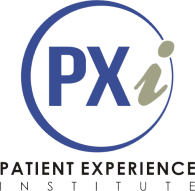Abstract
Patient reported experience measures (PREMs) can quantify the quality of the patient-clinician relationship, which is associated with adherence and improved health. However, the scales used to assess PREMs have large ceiling effects, which limits our ability to learn and improve. This study assessed the correlation of four PREMs: the patient-doctor relationship questionnaire (PDRQ), a measure of perceived empathy, a measure of satisfaction with the visit, and a measure of communication effectiveness. We also assessed ceiling effects. We prospectively enrolled 103 new and return patients in this cross-sectional study. Patients completed a demographic questionnaire, the PDRQ, Jefferson Scale of Patient Perceptions on Physician Empathy (JSPPPE), four questions assessing communication effectiveness from the Clinician and Group Consumer Assessment of Healthcare Providers and Systems (CG-CAHPS), an 11-point ordinal measure of satisfaction with the doctor, and four psychological measures. Correlations and ceiling effects were measured. In bivariate analysis, PDRQ had large correlations with measures of perceived empathy (r=0.58, P<0.001), satisfaction (r=0.59, P<0.001), and communication effectiveness (r=0.66, P<0.001). No PREMs correlated with psychological measures. Ceiling effects were common: PDRQ 55%, JSPPPE 35%, communication effectiveness 33%, and satisfaction 76%. These large correlations support prior evidence that these PREMs measure a common underlying construct, and a single questionnaire may suffice. To better understand factors associated with improved patient experience, we need measures with limited ceiling effect.
Experience Framework
This article is associated with the Policy & Measurement lens of The Beryl Institute Experience Framework. (http://bit.ly/ExperienceFramework)
- Access other PXJ articles related to this lens.
- Access other resources related to this lens.
Recommended Citation
Gonzalez A, Kortlever J, Rijk L, Ring D, Brown L, Reichel L. Is there a correlation between the patient-doctor relationship questionnaire and other patient-reported experience measures?. Patient Experience Journal. 2020; 7(1):44-50. doi: 10.35680/2372-0247.1399.
Creative Commons License

This work is licensed under a Creative Commons Attribution-Noncommercial-No Derivative Works 4.0 License.
Included in
Health Services Administration Commons, Health Services Research Commons, Other Public Health Commons


